COP26: INDUSTRIAL FISHING IS WRECKING THE OCEAN
30.10.2021
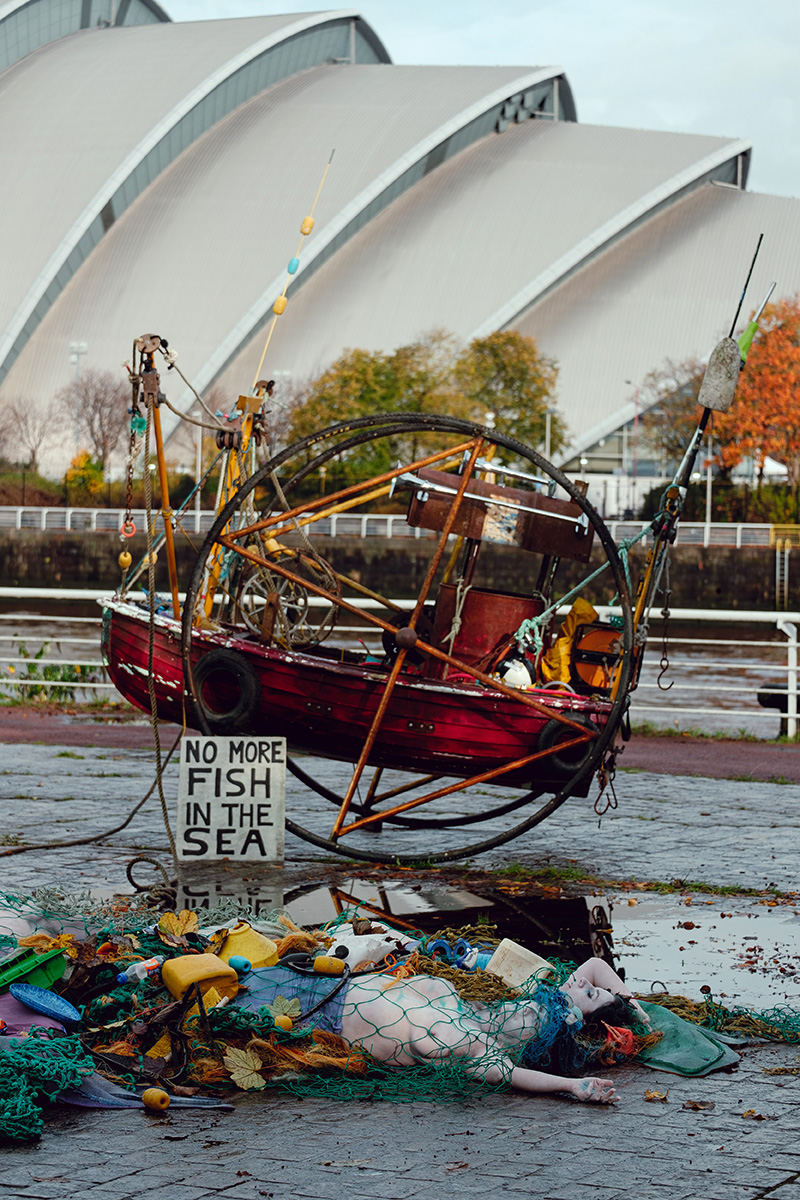
At the 11th hour today Ocean Rebellion made a plea to the delegates at COP26 to stop industrial fishing before it’s too late.
A trawler with a bycatch of nine, waste strewn, Mer-people ran aground on the banks of the River Clyde. The Mer-folk were tangled in a bottom trawling net, a trap that no marine creature can escape. The trawler sounded its foghorn, sharp blasts to raise the alarm about the climate emergency and the destruction of the Ocean.
The scene is a reminder of the thousands of tonnes of bycatch that’s thrown back into the sea, our North Sea, every year. This ‘fish discarding’ is illegal but the industrial fishing industry doesn’t care. It just considers the carnage a necessary part of bottom trawling, collateral damage in the War on Fish.
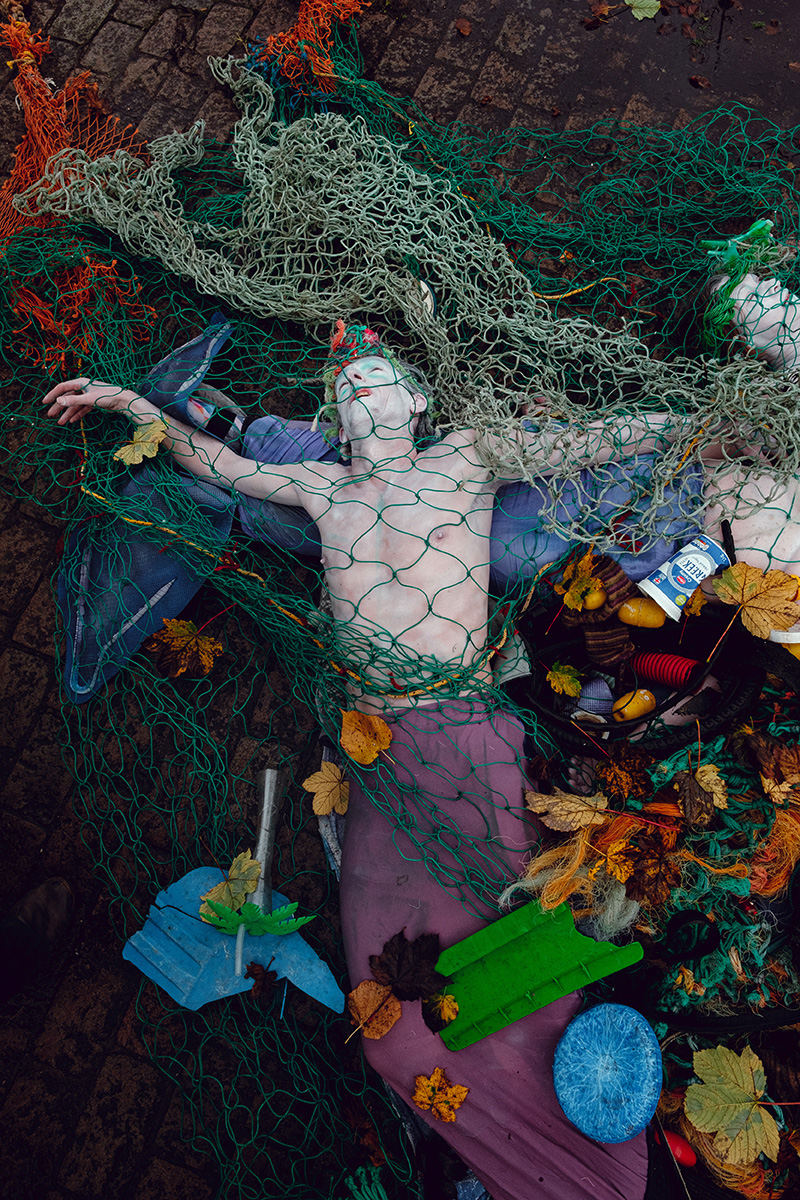
ECONOMICS
The price of fish and ‘cheapness of protein’ is often used as an argument for bottom trawling. But none of the figures add up. What we don’t pay in the retail cost of trawled fish we pay in subsidises. Bottom trawling is simply uneconomic and totally destructive. A study in 2013 found that each tonne of fish caught by deep sea bottom trawling costs at least 380 Euros in subsidies. And these subsidies don’t equal more jobs, here’s what the report says on jobs:
“Of all fishing practices, EU data suggests that trawling is among the lowest in terms of number of jobs sustained per tonne of fish. Methods such as long lining could sustain six times as many jobs and are not as harmful to the environment and ecosystems. These gear types distribute relatively more of the benefits of fishing to people rather than to fuel companies and business profits.”
You can read the full report here.
To add insult to injury it’s small-scale fishing which suffers most.
World governments spend US$7.7 billion a year in subsidies to industrial fisheries but small scale fishing supplies 50% of the worlds seafood. Most small scale fishing is in developing countries, and employs more than 90% of fishers. Despite this, small scale fishing receives only 25% of the annual subsidies that industrial fishers receive – that’s not very fair is it?
We demand the delegates of COP26 repair this damage. Stop subsidising industrial fisheries and concentrate on helping small scale fishers. This will help rebuild traditional fishing communities and protect the Ocean for future generations to enjoy.
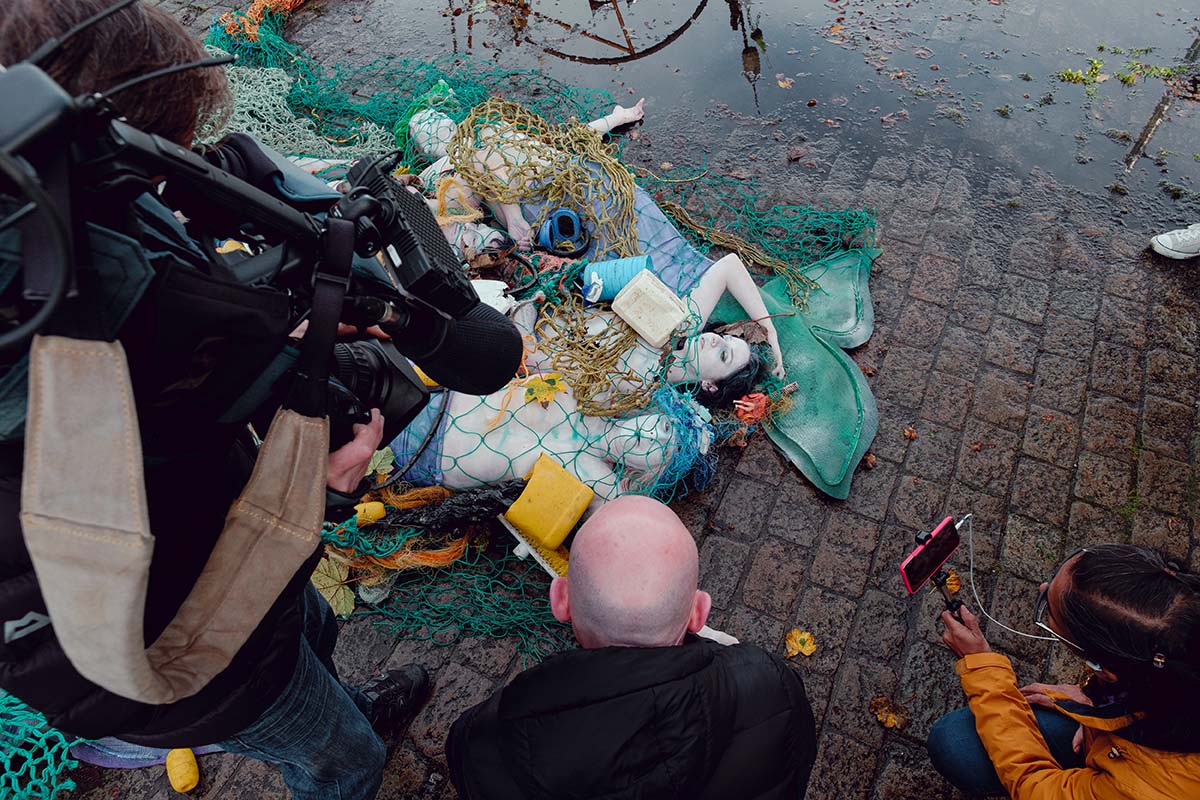
POLLUTION
Bottom Trawling is estimated to emit more CO2 than global aviation.
CO2 stored in the oceans is known as Blue Carbon. This is carbon stored in seabed sediments, marine habitats and the fish caught there. When the seabed is damaged by bottom trawling, this blue carbon is released, switching the seabed from a carbon sink to a source of CO2 and of methane (CH4), a much more potent greenhouse gas. Blue Carbon is also stored in marine animals, so fish taken out of the sea also add to Blue Carbon release. If this figure were included in carbon footprint calculations, it’s likely that the actual footprint of some bottom trawled seafood would be even higher than any other food, including beef. All this contributes to ocean acidification which is threatening to eradicate marine life especially those with skeletons or shells in the relatively near-term. Countless marine species are now threatened with extinction.
Industrial fishing vessels release 159 million tonnes of CO2 each year. This is equivalent to the annual amount of CO2 emitted by 40 coal-fired power plants. This figure has risen four-fold since 1950 estimates.
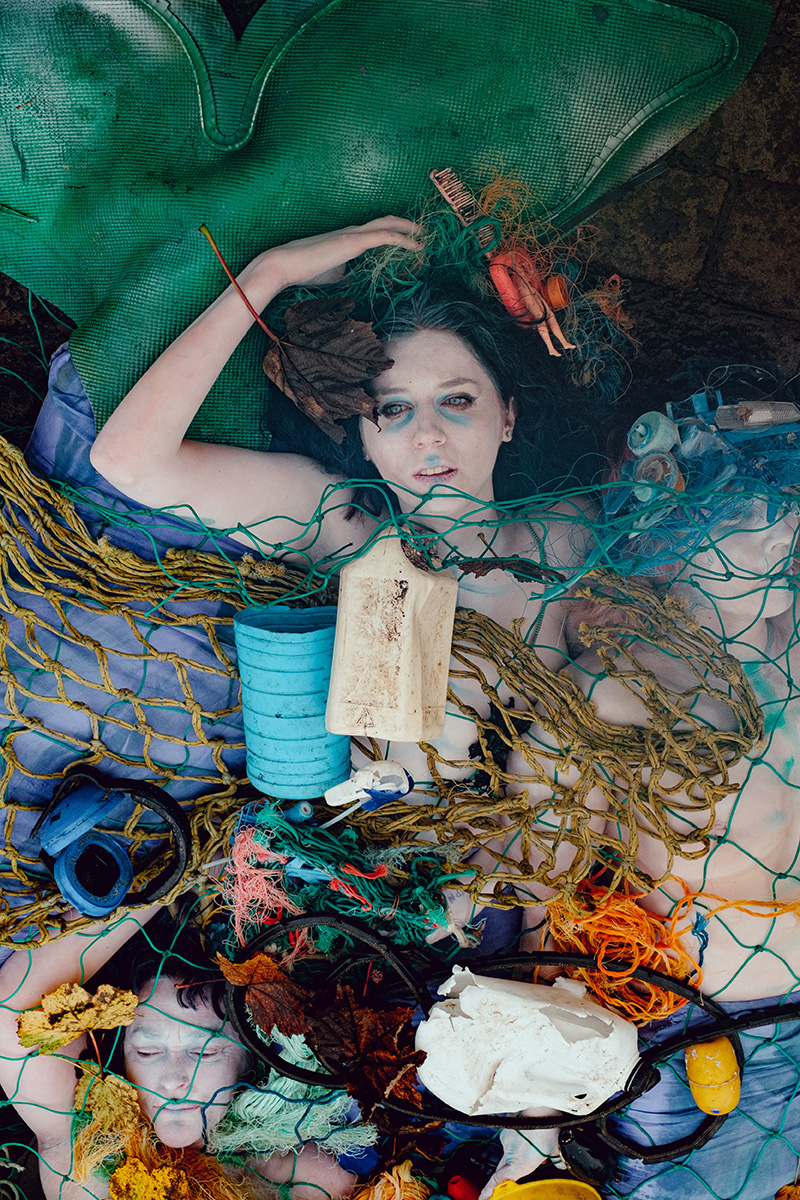
Rob Higgs from Ocean Rebellion says:
“Imagine how much damage a net bigger than a jumbo jet causes as it drags across the seabed. It catches everything in its path (whatever that might be), destroys marine life, and releases the ‘blue’ carbon stored there. Bottom trawling emits more greenhouse gases than aviation. That’s a lot of gases.”
Sophie Miller also from Ocean Rebellion adds:
“Often nets break, and when they do the net is cut free to float across the Ocean killing anything that gets tangled. And, when they break, the boat is ready with another to cast into the ocean to continue the death toll.”
Roc Sandford also from Ocean Rebellion says:
“Humanity has declared war on fish and we’re winning. The Ocean is so depleted that small fishing communities are on the edge of survival and areas of former plenty are now empty. Over 100 million people rely on inshore subsistence and small-scale artisanal fishing for their daily food and livelihood − often using the same waters targeted by bottom trawlers. It’s a no-brainer to ban bottom trawling both on climate breakdown and nature breakdown grounds. Climate breakdown and nature breakdown are effectively the same thing and both have to be stopped now.”
Clive Russell also from Ocean Rebellion says:
“We demand all marine bodies Tell the Truth about destructive fishing and stop greenwashing a dirty industry with ‘sustainability’ lies. We must end bottom trawling worldwide, NOW, together with a just transition for displaced fisheries workers.”
Suzanne Stallard also from Ocean Rebellion says:
“The Ocean can recover quickly, but only if we halt this destructive practice now, within a few years these precious ecosystems will regenerate and fish populations will stabilise. We just need to give life a chance, if we don’t, there will be no more fish in the sea.”
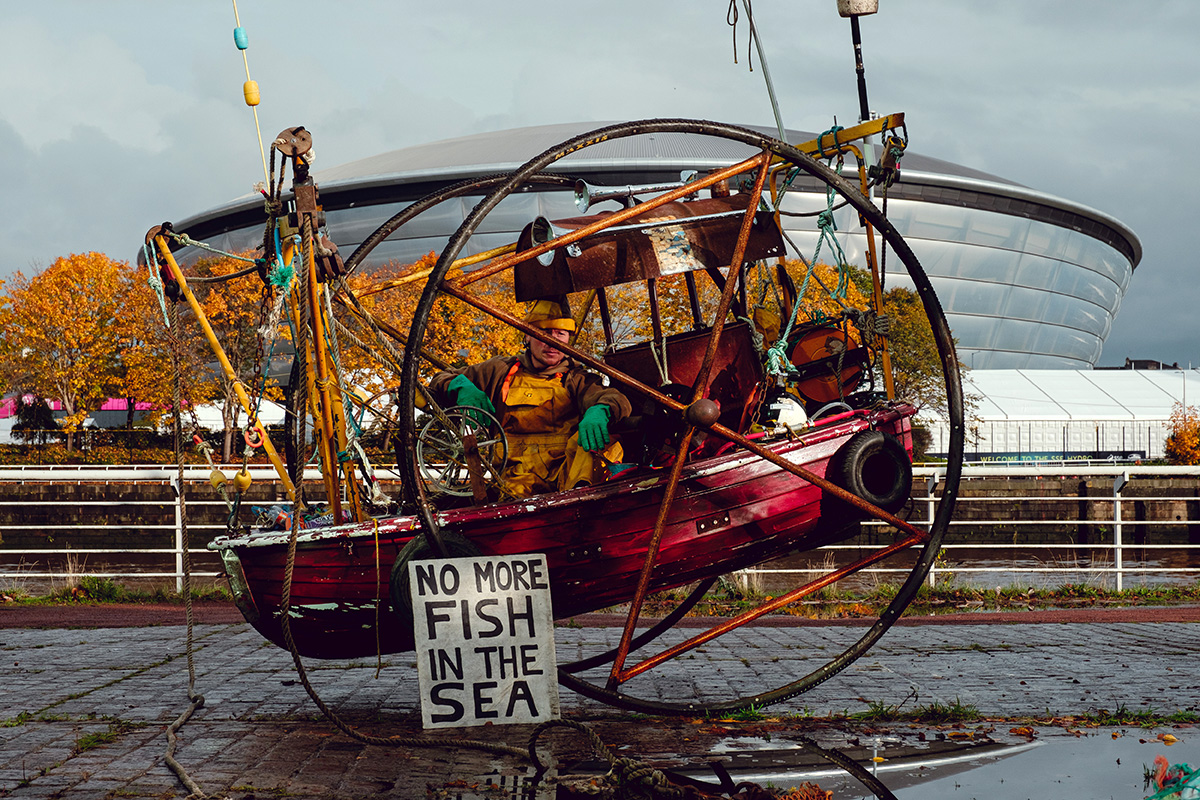
We demand all marine bodies TELL THE TRUTH about industrial fishing and stop greenwashing the industry with ‘sustainability’ lies.
We demand governments end bottom trawling, worldwide NOW, together with a just transition for displaced fisheries workers.
ACT NOW
Take part in the Ocean Rebellion supermarket ‘unsustainable fishing’ certification scheme:
oceanrebellion.earth/news/supermarket-sticker-sweep
Sign this community-led petition to return the three mile limit to safeguard Scottish waters from Bottom Trawling:
ourseasscotland.eaction.org.uk/bring-back-the-fish
Sign this European petition to stop Bottom Trawling in Marine Protected Areas:
act.wemove.eu/campaigns/bottom-trawling
And this UK petition by the makers of Seaspiracy:
change.org/p/george-eustice-mp
For more information visit:
oceanrebellion.earth/news/don-t-touch-my-bottom
Photos: Joao Daniel Pereira